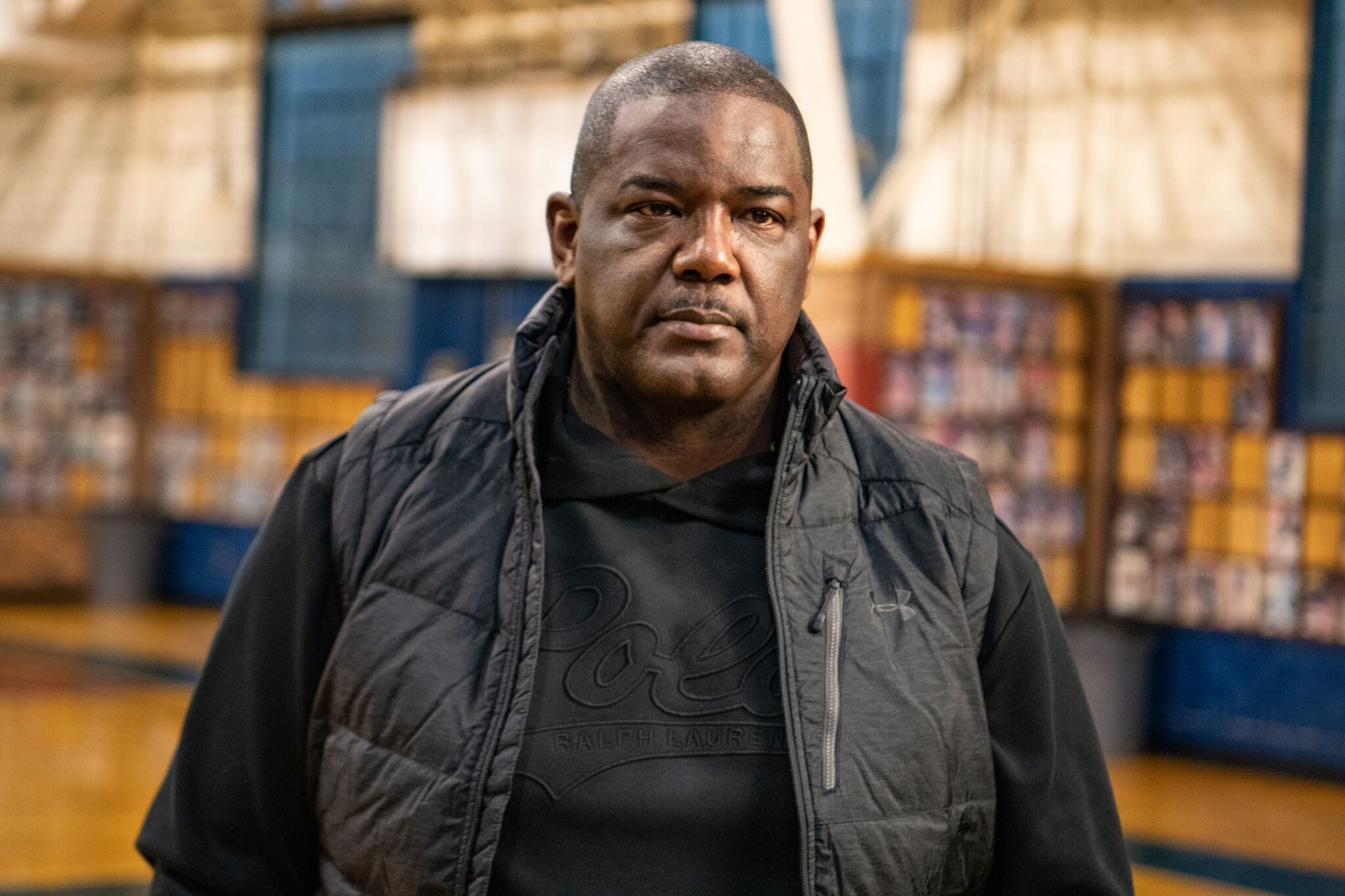
Outside of the city of Detroit, you would be hard-pressed to find a city with a richer tradition of basketball at any level. Maybe in New York City or Chicago, but even then, Detroit would still be competitive on the court.
The Motor City produced the first player to go from high school to the professional ranks, when 7-footer Reggie Harding starred at Eastern High for three years and was drafted by his hometown Detroit Pistons in the 1962 NBA Draft. Some of the game’s greats hail from Detroit, including Dave DeBusschere, Curtis Jones, Spencer Haywood, George “Iceman” Gervin, Chris Webber, Jalen Rose, Winfred Walton, Robert “Tractor” Traylor, Dion Harris, Manny Harris, and so many others.
Under Armour (UA) brand ambassador and Phoenix Suns forward Josh Jackson has called next. UA paid homage to his hometown with an eight-minute feature exploring the past, current, and future of basketball culture in the city titled, “Homecourt Detroit.” Actor and former 6-foot-8 basketball player Sarunas Jackson narrates the feature, traveling all over the city to local hoops hotspots, talking to former players and other figures about what makes hooping in the Motor City one-of-a-kind.
[youtube https://www.youtube.com/watch?v=L-21U-aLp_E&w=560&h=315]
The first stop was to the famous St. Cecilia Gym on the city’s west side, where anyone who was someone in the basketball community in Detroit played. The small gym, with limited seating and no air conditioning, was founded by Sam Washington Sr. in 1968 right after the riot of 1967.
It was originally for those in the neighborhood, but when former Pistons guard Dave Bing, who would later become Mayor of Detroit, needed a place to work out due to a contract dispute in 1974 with former Pistons owner Bill Davidson, it started a trend that saw the city’s best and NBA stars flock to the gym near Livernois and Grand River to prove who was the best on the hardwood. NBA legends Earvin “Magic” Johnson, Julius “Dr. J” Erving, Bernard King, Isiah Thomas, and even Marvin Gaye all played at “The Saint.”
“I remember going to Philadelphia and we had a great team with Dr. J and Moses (Malone) in ’83 when we won a World Championship,” said Earl Cureton, who played at Finney High in Detroit, Detroit-Mercy, and for the Pistons. “As soon as that season ended, and the parades were over, it was time to get back home and go to St. Celilia. That (winning a NBA title) meant nothing to the guys in the city.”
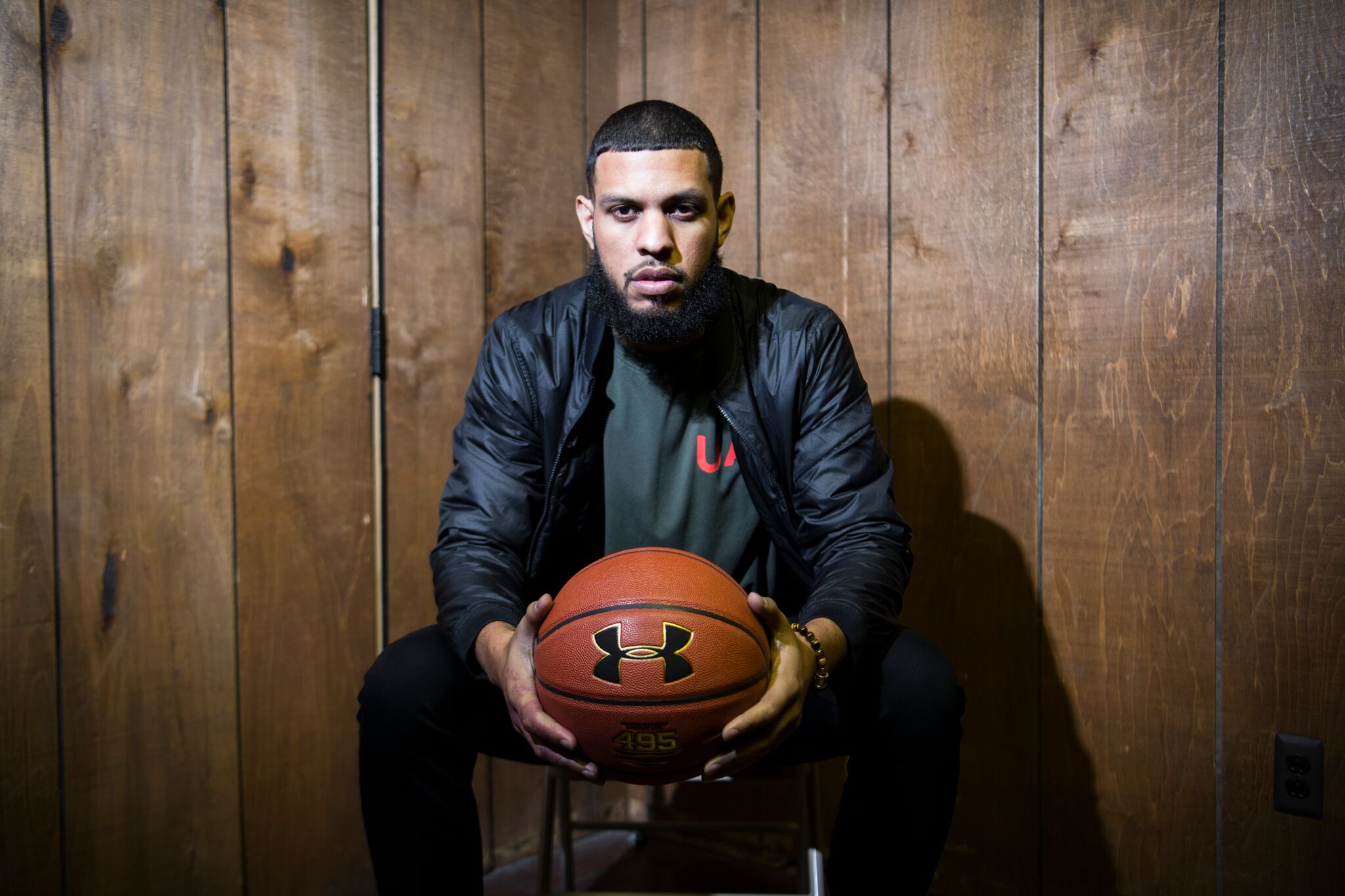
For the younger generation, the go-to proving ground for basketball in Detroit became the Joe Dumars Fieldhouse on Eight Mile Road near Woodward. Among Detroiters, it is simply known as, “Joe D.” The four-court facility is situated in a barn once used by the old Michigan State Fairgrounds and is named after former Detroit Pistons Bad Boy Joe Dumars, who helped win back-to-back NBA titles in 1989 and 1990 as a player and as an executive in 2004.
Detroit has always been known as a gritty, hard-working, no nonsense type of place and that is the brand of basketball that has been played throughout the city, from the blacktops to the old Cobo Arena.
“Basketball has always been an outlet and a way out for so many people,” said Dumars, whose No.4 jersey was retired by the Pistons. “It was a way for kids to get scholarships to college, maybe make it to the NBA, and to give young guys and young girls somewhere to go.”
“That’s why the Bad Boys were such a staple here. We represented Detroit. The Bad Boys were the representatives of the culture.”
St. Celicia is considered the Kronk Boxing Gym of basketball in Detroit. But even boxers had hoop dreams. New WBC Super Welterweight champion Tony Harrison did, growing up on Detroit’s west side near Seven Mile and Greenfield. Now he trains basketball players at his Superbad Gym on Puritan Ave. Much like boxing, you have to have that toughness when playing basketball in Detroit or you will not survive.
“No matter where you go, you have to be tough in Detroit,” Harrison said. “(Playing basketball), it wasn’t about scoring points, it was about fouling. It’s an unlimited amount of fouls and people get every single bit of it.”
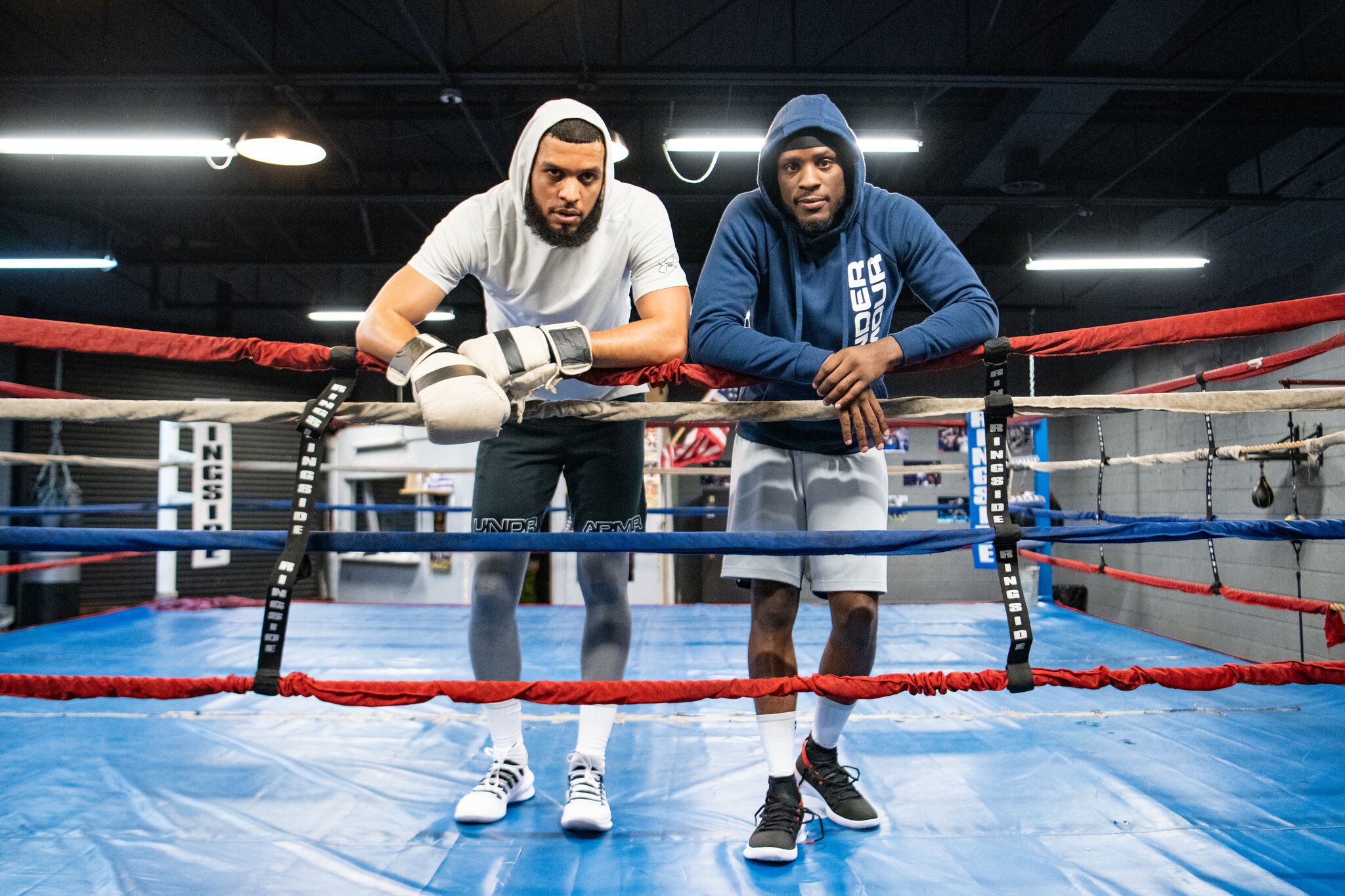
Detroiters move with a chip on their shoulders, whether you are a basketball player, auto worker, student, or hustler. Growing up in the city is not easy, no matter if you are from Mack and Van Dyke on the east, or Joy Road and Evergreen to the west. In the city, it is that “us versus everybody else” mentality. While the nation looks to tear down the city, and feed a false narrative, there are many who are proud to be from Detroit, which prompted Tommey Walker to start the popular T-shirt brand, “Detroit vs. Everybody” in 2012. Just about everyone from Detroit has supported the brand, from rapper Eminem and former NBA player Jalen Rose, to the thousands of bootleggers around the world copying yet another trend started in Detroit.
“It ignites some underdog energy to where you have to prevail,” Walker said on being from Detroit.
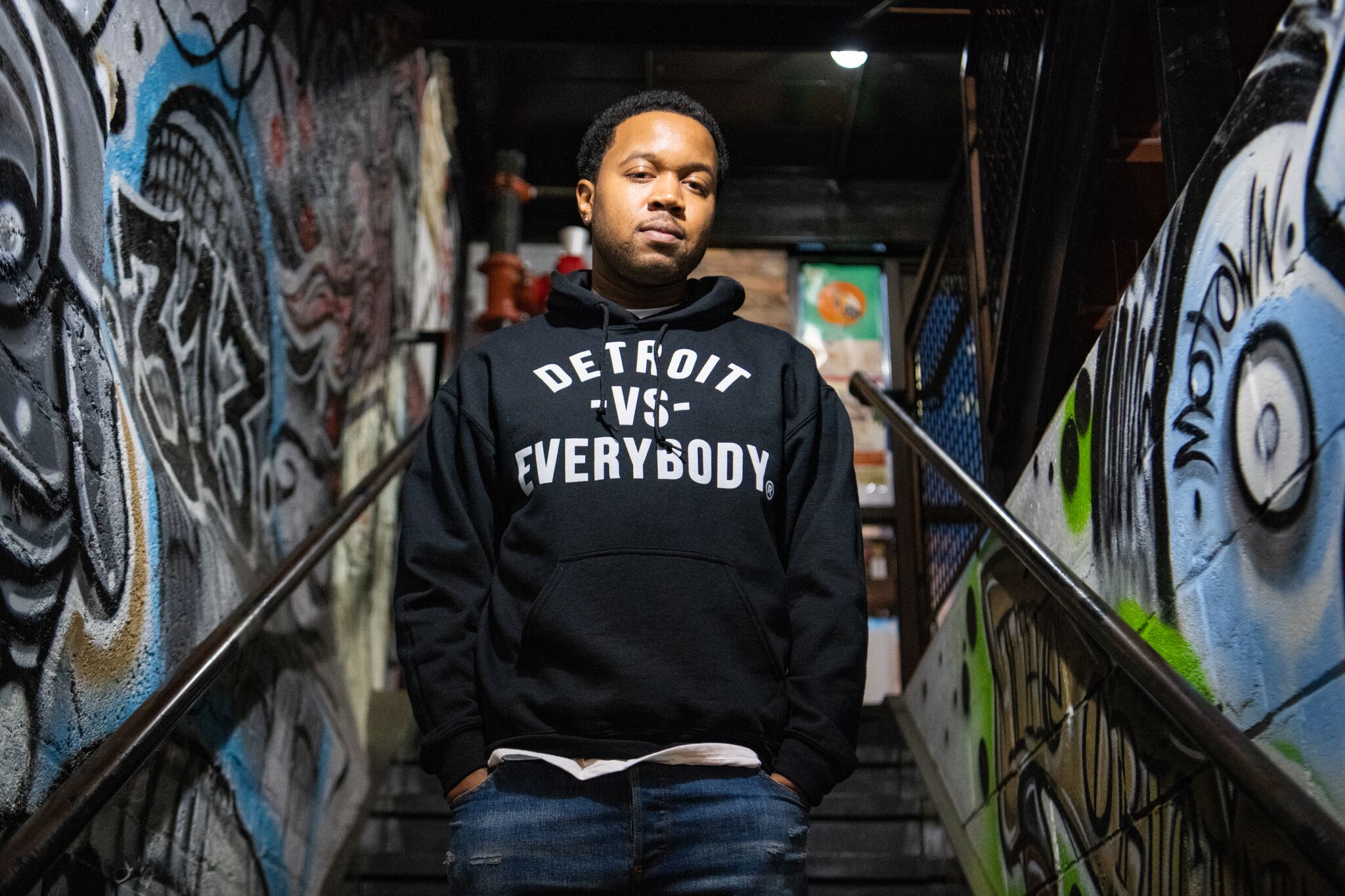
Drake once said, “Sports and music are synonymous. ‘Cause we want to be them, and they want to be.” Entertainment and ball have always gone hand in hand and there may be no bigger basketball fan in Detroit than budding rapper Sada Baby. Known for his high energy on tracks, dance moves, and “comfortable” personality, when he is not in the booth, you can find him at your local LA Fitness getting a competitive hoop run in when his famous Nike headband on.
Sada Baby sat down with Jackson at the popular donut shop, “Dilla’s Delights”, in downtown Detroit named after fallen music producer J-Dilla who attended Pershing High. The Doughboys produced some basketball greats, including Spencer Haywood, Ralph Simpson, Steve Smith, Willie Mitchell, Winfred Walton, Arthur Johnson, Derrick Nix, Keith Appling, Kay Felder, and many more.
“Playing basketball has a lot to do with my make-up,” said Sada Baby. “That’s why I still do it and I’m still in love with it to this day. We literally used to hoop in the snow. The ball didn’t bounce, so we would just shoot it.”
Sada Baby in fact has a song called “Josh Jackson” in honor of his good friend and Detroit brethren. And while he never mentions Jackson’s name in the song, he admits Jackson, Ramar Smith (King), Manny Harris (Redford), and Brandon Cotton (DePorres) ignited his love for basketball.
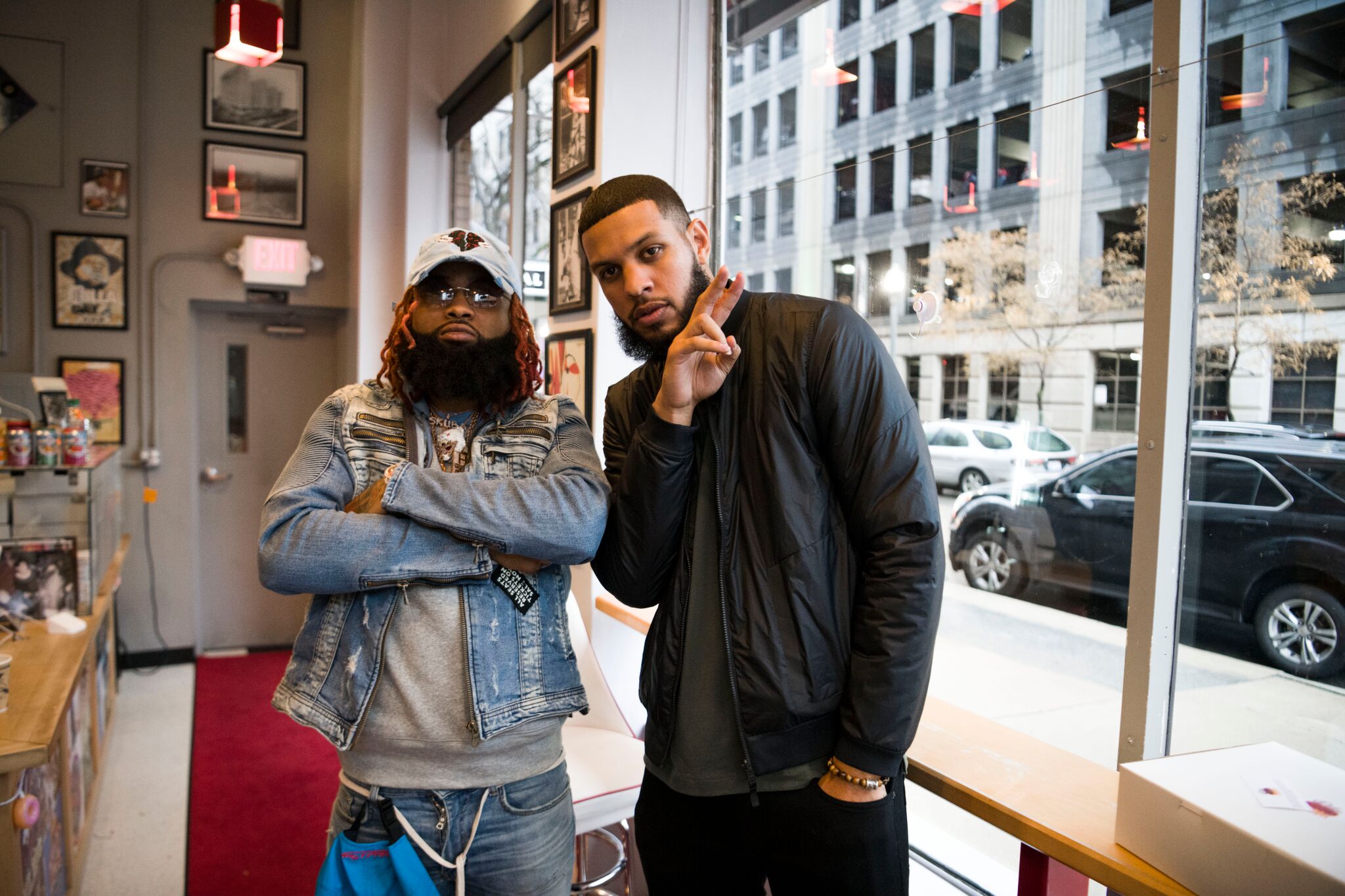
Cotton was one of the best high school basketball players in the nation in 2003, along with LeBron James, Chris Paul, Luol Deng, and Shannon Brown, among others. He was a McDonald’s All-American and signed on to play for Tom Izzo at Michigan State. After one year, he left and returned home to Detroit to play at Detroit-Mercy. He played professionally in Iceland, the Dominican Republic, and the D-Leauge (now the G-League), but his NBA dream never materialized. Now he works with youth basketball players in Detroit not only on their basketball skills, but skills for life as well.
“I tell the kids that I work with now, I was probably the best in the state coming out my senior year,” said Cotton, who averaged 27 points a game in high school. “But when I got to Michigan State, it was six other Brandon Cottons. I would watch Shannon Brown and Alan Anderson be in the gym at night after we had just got done with a four-hour practice. But the hard work paid off.”
“College coaches come in the gym already knowing you can play. They want to see how you respond to adversity and how your character is off the court.”
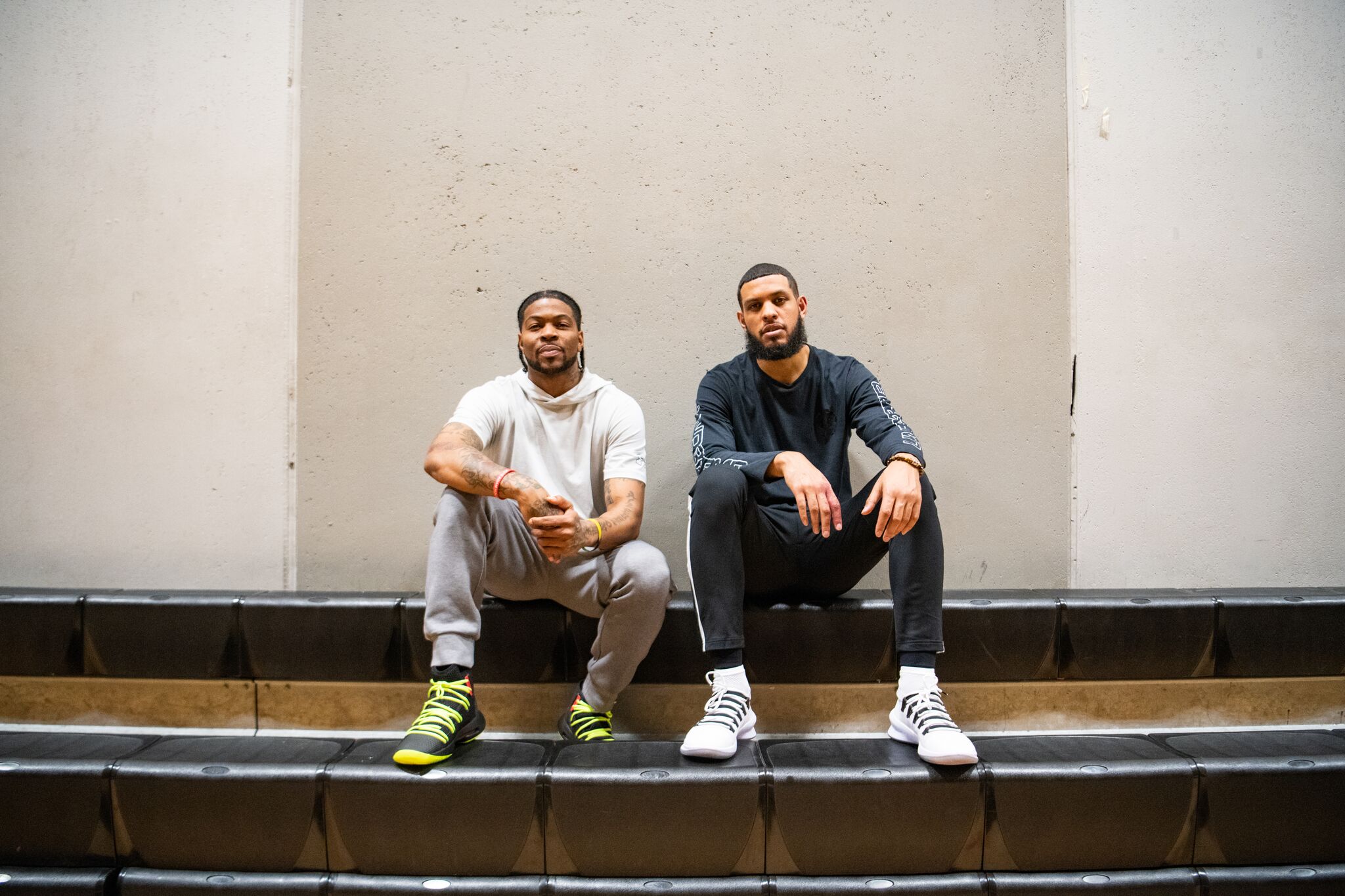
Brittany Foote is the head girls basketball coach at University Prep High School in Midtown Detroit and she is grooming the next group of great hoopers out of Detroit at her program, although opportunity is few and the resources are scarce.
“We have a lot of talent in Detroit, especially young talent,” said Foote. “I feel like sometimes they get overlooked because there isn’t a lot of programming around it.”
“You start unknown. You end unforgettable. That is what Detroit basketball is about.”